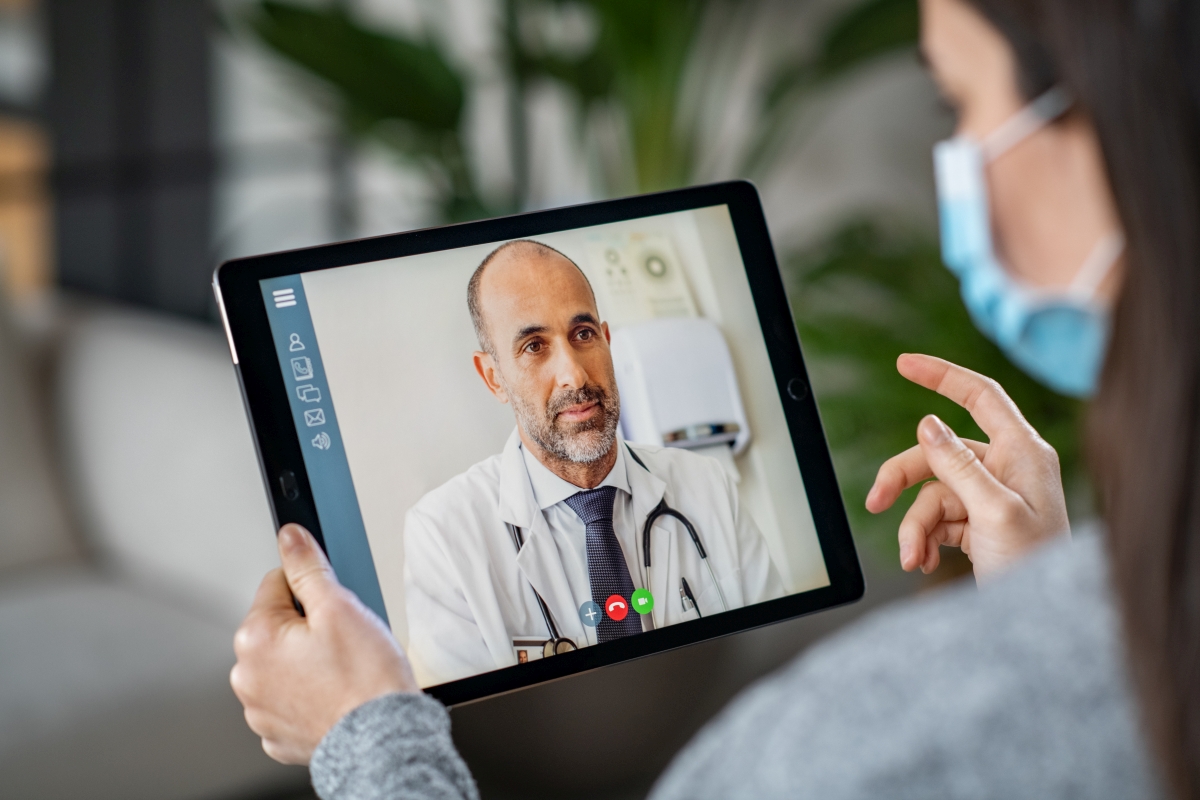Teledoctors vs Traditional Healthcare: Which is Better?
Teledoctors vs Traditional Healthcare: Which is Better?
Blog Article
Exploring the Advantages and Challenges of Teledoctors in Modern Healthcare
As the healthcare landscape evolves, teledoctors have become a critical element in connecting spaces in medical gain access to and effectiveness. While they use the assurance of getting to remote locations and reducing operational costs, the journey is not without its hurdles. Privacy issues, the electronic divide, and cybersecurity risks posture substantial obstacles that need to be dealt with to harness their complete possibility. Just how can the healthcare market equilibrium these benefits with the inherent difficulties? This dilemma invites a deeper expedition into the transformative role of teledoctors fit the future of health care delivery.
Expanding Access to Care
Telemedicine has arised as a critical development in modern-day health care, significantly increasing access to look after varied populations. By leveraging electronic modern technology, teledoctors have actually transformed the standard healthcare shipment version, making it possible for individuals in underserved or remote locations to obtain timely medical appointment. This evolution is particularly advantageous for people residing in rural areas, where the shortage of health care centers and specialists commonly brings about delayed or inadequate therapy.
Teledoctors contribute in connecting the void created by geographical obstacles. Through digital appointments, individuals can access a variety of medical care solutions without the need for extensive traveling. This is particularly valuable for those with mobility concerns or chronic problems calling for frequent medical interest. Furthermore, telemedicine improves connection of care by allowing normal follow-ups and surveillance, therefore enhancing person outcomes.
The assimilation of teledoctors right into healthcare systems likewise sustains the management of public health and wellness crises by promoting rapid feedback and triage. Throughout pandemics, as an example, virtual appointments reduce the burden on physical healthcare centers, decreasing exposure dangers for both clients and healthcare suppliers. As telemedicine proceeds to progress, it assures to reshape the landscape of medical care availability, making it more efficient and inclusive.
Cost-Effectiveness of Teledoctors
The cost-effectiveness of teledoctors is a significant element driving their extensive adoption in healthcare systems. By reducing the need for physical framework and in-person sees, teledoctors offer a more economical choice to traditional health care delivery.
Furthermore, teledoctors promote a much more reliable use of medical care sources by reducing unneeded emergency area check outs and health center admissions. People can access timely appointments for minor disorders or follow-up treatment, which assists to relieve the concern on overstretched health care centers. This performance not only brings about cost financial savings for healthcare companies but additionally minimizes the monetary pressure on people who could otherwise deal with expensive hospital expenses.
Furthermore, teledoctors can assist in taking care of persistent illness more successfully by offering constant surveillance and prompt treatments. This positive strategy can avoid problems, thus decreasing long-lasting therapy expenses. On the whole, teledoctors provide a viable option to the intensifying expenses of health care, while preserving quality treatment shipment.
Enhancing Patient Benefit
While cost-effectiveness plays a crucial duty in the increase of teledoctors, improving patient benefit stands as an additional compelling benefit of this medical care model. With the combination of teledoctors, people can bypass the commonly taxing procedure of scheduling and attending in-person appointments.
In addition, teledoctors offer adaptable scheduling, enabling individuals to arrange appointments sometimes that finest match their expert and personal commitments. This versatility is indispensable for people balancing demanding job schedules or household responsibilities, making certain that medical care can be integrated effortlessly right into their lives. In addition, the capacity to accessibility doctor from the comfort of one's home can lead to increased client involvement and adherence to treatment plans, as the barriers to looking for treatment are lowered.
The benefit supplied by teledoctors not just enhances the person experience yet also contributes to a much more receptive and reliable health care distribution system, inevitably supporting better wellness end results.
Attending To Privacy Problems
In the middle of the growing adoption of teledoctors, personal privacy problems become a substantial factor to consider. As healthcare significantly relies upon electronic systems, guaranteeing the confidentiality of patient information becomes paramount. The More hints digitization of clinical records and the usage of telecommunication technologies necessitate durable security procedures to protect sensitive information from unauthorized gain access to and violations.
Doctor have to abide by strict policies, such as the Medical Insurance Portability and Accountability Act (HIPAA) in the USA, which develops national standards for guarding clinical information. Compliance with such laws is critical in preserving client count on and ensuring their information is taken care of sensibly. Security of information, safe and secure communication channels, and normal audits are a few of the procedures that can be implemented to enhance information security.
Despite these actions, difficulties linger. Cybersecurity dangers are evolving, and medical care organizations need to remain vigilant to brand-new vulnerabilities. In addition, educating both people and doctor concerning finest techniques in data privacy is necessary. This consists of understanding the restrictions of data and the value of secure login qualifications. teledoctors.
As teledoctors end up being extra important to healthcare distribution, dealing with privacy problems is important to make sure both the efficacy and reliability of these solutions.

Browsing the Digital Divide
Bridging the electronic divide is a vital obstacle in the widespread fostering of teledoctors. teledoctors. This divide incorporates disparities in accessibility to digital modern technology, particularly amongst country, low-income, and elderly populations. These teams often lack the needed tools, reputable internet connectivity, or digital literacy needed for reliable involvement in telehealth solutions. Subsequently, the advantages of teledoctors-- such as raised ease of access and official site comfort-- remain unreachable for numerous people that can most profit from them.
Furthermore, initiatives to subsidize modern technology for low-income homes can play a crucial duty in ensuring equitable accessibility. Health care companies and community organizations need to work together to supply digital proficiency programs, empowering people to browse telehealth platforms with confidence.

Verdict
The combination of teledoctors right into contemporary medical care uses significant benefits, consisting of enhanced accessibility to care, cost-effectiveness, and enhanced person benefit. Nonetheless, challenges such as personal privacy concerns, the electronic divide, and cybersecurity hazards should be resolved to optimize these benefits. By carrying out durable data security measures, about his enhancing electronic literacy, and making sure secure technological framework, the capacity of teledoctors can be totally realized, advertising fair medical care shipment and transforming the health care experience for all individuals.

Report this page